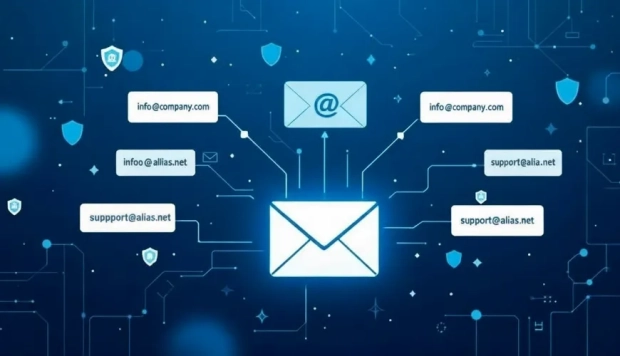Why Email Marketing Is a Game-Changer for Law Firms

For decades, law firms traditionally relied on referrals, word-of-mouth, and local advertising to grow their client base. But in today's digital-first world, those methods no longer guarantee consistent visibility or growth. That's where email marketing for lawyers steps into the spotlight. While it may seem like a strategy reserved for online retailers or startups, email marketing is becoming an increasingly powerful tool for legal professionals looking to connect with clients, establish authority, and remain top-of-mind in a competitive marketplace.
At its core, lawyer email marketing is about building trusted relationships through the inbox. For a profession built on trust, communication, and expertise, there's perhaps no better medium than email-when done right.
Why Email Works So Well for Law Firms
Email is direct, personal, and cost-effective. Unlike social media posts that vanish in the algorithmic shuffle or paid ads that disappear once the budget runs dry, emails land straight in the recipient's inbox, often alongside correspondence from family, friends, and trusted businesses. That positioning alone offers a level of intimacy and attention few other marketing channels can match. According to a Litmus report, email delivers a return on investment (ROI) of $36 for every $1 spent, one of the highest among digital marketing channels.
But for law firms, the value goes beyond ROI. Email allows lawyers to educate clients, provide legal updates, and nurture long-term relationships. From newsletters about recent legal developments to automated follow-ups after a consultation, email provides a structured way to stay connected without being intrusive.
Building Trust Through Valuable Content
The most successful lawyer email marketing campaigns focus not on hard sales but on providing value. Clients and prospects want to know they're working with someone who not only understands the law but also cares about their situation. Educational content-like answers to common legal questions, case studies, or updates on changes in legislation-can showcase a firm's knowledge while building trust.
For instance, a family law firm might send a monthly newsletter highlighting changes in custody laws or tips for managing the emotional aspects of divorce. A personal injury firm might explain what to do immediately after an accident. These types of insights are not only informative-they're actionable and relevant, helping the firm stay top-of-mind when legal services are needed.
One real-world example comes from a mid-sized estate planning firm based in Chicago. By segmenting their email list into past clients, prospects, and professional partners, they were able to tailor content with pinpoint relevance. The result? A 28% increase in consultation bookings within six months, driven largely by automated email campaigns that nurtured leads over time.
Automation Tools That Save Time and Increase Impact
Modern email platforms like SendBridge make it easier than ever for law firms to automate their outreach while maintaining a personal touch. Features such as email marketing automation allow lawyers to set up behavior-triggered campaigns-think birthday greetings with legal tips, follow-ups after consultations, or check-ins at the one-year mark post-case.
Automation doesn't mean impersonal. In fact, tools like SendBridge allow for personalized subject lines, custom fields (like inserting a client's name or case type), and dynamic content based on user behavior. These touches make marketing emails feel like thoughtfully written messages rather than mass-distributed blasts.
However, automation is only effective when email reachability is high. This is where email verification and email deliverability tools come into play. Ensuring that your messages aren't bouncing or landing in spam folders is critical-especially in a field where trust and professionalism are paramount.
Protecting Reputation with Email Verification and Deliverability Tools
You wouldn't want your law firm's credibility judged by a message that never arrived-or worse, ended up in the junk folder. Tools like SendBridge allow firms to maintain high sender reputation by running SMTP testing, identifying spam triggers, and verifying email addresses before sending large campaigns. These steps might seem technical, but they help ensure that messages reach their intended targets securely and professionally.
Maintaining a strong sender reputation also involves spam prevention practices. This includes avoiding spammy language, using a professional email address (like john@lawfirm.com rather than lawfirmspecialist2023@gmail.com), and including a clear unsubscribe option in every message. These best practices aren't just good for deliverability-they're legally required under regulations like the CAN-SPAM Act.
Segmenting Audiences for Better Results
Unlike traditional marketing, where one message goes out to a broad audience, email allows for precise segmentation. A criminal defense attorney might send different content to clients who've already used their services than to those who are merely browsing their site. Similarly, employment lawyers can tailor messages based on whether a recipient is an employer or employee.
Segmentation increases relevance, which in turn boosts engagement. According to Campaign Monitor, segmented campaigns can result in a 760% increase in revenue. For lawyers, this could translate to higher consultation rates, more referrals, or increased loyalty from existing clients.
Staying Compliant While Marketing
It's important to note that legal professionals must tread carefully when marketing their services. Ethics rules vary by jurisdiction, but most bar associations require transparency, disclaimers, and the avoidance of misleading claims. Email marketing must reflect this professionalism.
That means disclosing that content is for informational purposes only and not legal advice. It also means erring on the side of caution when discussing past case outcomes. Fortunately, platforms like SendBridge can help law firms craft compliant templates and manage opt-ins appropriately to avoid any regulatory pitfalls.
Measuring Success Beyond Open Rates
While metrics like open rates and click-through rates (CTR) are useful, law firms should also look at downstream results. Are your emails leading to more consultation requests? Do recipients forward your content to others? Are prospects engaging with your site after receiving an email?
With the right tools, it's possible to track not just who opened an email, but what they did next. SendBridge integrates performance tracking into its dashboard, so firms can see which campaigns are driving actual client engagement. This kind of data allows for continuous improvement-refining subject lines, adjusting send times, or testing new types of content.
Bulk Campaigns with a Personal Touch
Sometimes, law firms need to communicate at scale-whether it's a large bulk email campaign to announce an office opening, or a city-wide alert about a legal issue affecting thousands. Even in these cases, personalization and relevance matter.
Using smart segmentation and marketing automation, firms can run bulk campaigns that still feel targeted. For example, an immigration law firm sending out visa updates can segment recipients by visa type or application stage. That way, each email feels directly relevant, even when sent to thousands.
To quote the Twilio blog on this topic, "The key isn't to sell-it's to serve.” That philosophy aligns perfectly with the legal profession. By focusing on helpful, timely communication, law firms can build long-term trust that extends far beyond a single case.
The Future of Legal Marketing Is in the Inbox
Legal services may never be bought with a single click-but the journey toward hiring a lawyer increasingly begins online. With the right strategy, email marketing for law firms can be a powerful tool to cultivate relationships, educate the public, and grow a steady pipeline of clients.
Platforms like SendBridge are empowering law firms to do just that with tools for email verification, SMTP testing, spam prevention, email marketing automation, and bulk email campaigns-all while protecting sender reputation and ensuring compliance.
So, while the courtroom remains the lawyer's domain, the inbox is rapidly becoming their most valuable marketing arena.



